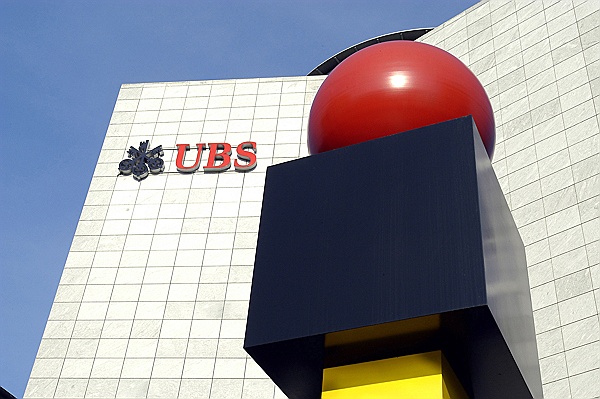Restoring UBS reputation “hinges on actions”

Recent efforts by UBS to boost its tattered reputation through marketing, refurbishment and sponsorship deals have met with a mixture of hope and scepticism.
The bank hopes to take advantage of a recent upturn in its fortunes with a public relations offensive. But the success or failure of this slick presentation campaign depends on what lies beneath its surface.
UBS has suffered a spectacular fall from grace in the past two years after writing off more than $50 billion ($51 billion) from toxic deals and seeing wealthy clients withdraw SFr200 billion of their assets.
The additional scrape with the United States over tax evasion further dragged UBS’s name through the dirt, especially in Switzerland where a weakening banking secrecy had to be conceded as a result of the fiasco.
But a return to profitability and a resolution to the US problems this year has sparked a new message from the bank.
The apologies and humble pie of the past few months has been replaced with a no-nonsense and confident message that the bank “will not rest” until it becomes known as “the” bank in the world.
Famous names
“The message is certainly to the point, as it delivers the message that UBS is working hard to recover trust,” Swiss banking expert Teodoro Cocca told swissinfo.ch. “It’s not a flamboyant message but a more modest one – this seems a well chosen and appropriate tone.”
The message is being pushed aggressively with a media campaign featuring famous success figures such as Sir Edmund Hillary, Muhammad Ali, Neil Armstrong and Steve McQueen.
The campaign came hard on the heels of a spending spree in Switzerland to give retail branches a facelift and was soon followed by a big sponsorship deal with the glamorous world of Formula 1.
The message has certainly spread some cheer among UBS’s long suffering staff, according to Thomas Albrecht, a member of the bank’s Employee Representation Committee – a body that acts as a go-between for shop floor staff and management.
“The reaction from staff has been generally very positive. People were waiting for a lift and a sign of strong leadership pointing us in the right direction,” he told swissinfo.ch. “Staff were hardly resting during the crisis, but this message has given them an opportunity to get out of the shadows and back to business as normal.”
Action, not words
But not everyone is so convinced that the public relations measures will have much of an impact on customers and potential clients.
“There is no way that any bank in trouble can communicate its way out of trouble,” Jan Nyholm, a branding expert at Zurich based firm WATC Consulting Building, told swissinfo.ch.
“Branding is not done by communication, it is built on what the customer expects when they walk into a branch, meet with an advisor or open their statement.”
“The financial crisis has made customers less brand driven and more focused on the business relationship with their bank,” he added. “Clients will want proof that the bank has also been investing on the other side – reducing fees and improving service and performance.”
Teodoro Cocca agrees that the messages being beamed around the world will have to be backed up by tangible measures if they are to be taken seriously.
“The success of the campaign will depend on the capability of UBS to deliver that message in their daily work with clients,” he told swissinfo.ch. “This is a strategic question that will determine the credibility of the bank.”
Bad marks
As if to prove that the marketing message can sometimes lack substance, a Zurich based rival bank called Hyposwiss recently launched its own campaign that took a swipe at UBS’s old brand message of “You & Us”.
“It will never be about you and us. It will always be about your money,” ran the Hyposwiss message, clearly playing on UBS’s recent image problems.
UBS has a lot of ground to make up as it attempts to rebuild its brand, according to the global research firm the Reputation Institute. Financial firms rarely fare well in public sentiment surveys, but UBS has never enjoyed a good reputation even in Switzerland during the good times, according to the research group.
Respondents to the Reputation Institute surveys are asked a number of questions about a company’s products, governance, corporate citizenship, performance, workplace and innovation to calculate a score out of 100.
While a score of over 80 is deemed excellent and 60-69 average, UBS scored just over 50 during the productive years of 2006 and 2007, while the reputation score plunged to 23 at the start of this year.
While such academic research will not concern UBS unduly, the bank will be closely monitoring the effects of its expensive campaign. Results will not be measured by scorecards, but by the number of new clients and assets the bank can attract.
UBS was the worst hit European bank from the subprime mortgage crisis, writing down some $50 billion between the end of 2007 and 2009.
The year 2008 proved to be the bank’s worst on record, with annual losses of SFr21 billion.
UBS admitted aiding and abetting US tax cheats the following year and was forced to pay a huge fine and break the Swiss banking secrecy code by handing over the confidential details of thousands of clients.
In 2008 and 2009, UBS lost around SFr200 billion in combined net outflows as wealthy individuals and institutions lost faith in the bank.
But the final three months of 2009 revealed some more encouraging signs as the bank posted a SFr1.2 billion Q4 profit, despite ending the year in the red – to the tune of SFr2.47 billion.
The first half of 2010 showed further improvement with a profit of SFr2.2 billion in the first three months and SFr2 billion in the second quarter. Net outflows from its wealth management businesses have slowed considerably since the turn of the year.
In June, the Swiss parliament finally ratified a deal between Switzerland and the United States that allowed UBS to hand over confidential client data without facing prosecution in its home country.
UBS was created from the merger of the Union Bank of Switzerland and the Swiss Bank Corporation in 1998.
The new bank’s logo featured – and still features – the three keys standing for “confidence”, “security” and “discretion”.
In 2003, the group’s various operations were bundled more closely together under the new brand “One UBS”.
UBS launched its first global branding communications campaign a year later under the title “You & Us”.
In August of this year, the You & Us brand was dropped in the wake of the financial crisis and the bank’s fall from grace in favour of the new “We Will Not Rest” campaign.

In compliance with the JTI standards
More: SWI swissinfo.ch certified by the Journalism Trust Initiative












You can find an overview of ongoing debates with our journalists here . Please join us!
If you want to start a conversation about a topic raised in this article or want to report factual errors, email us at english@swissinfo.ch.